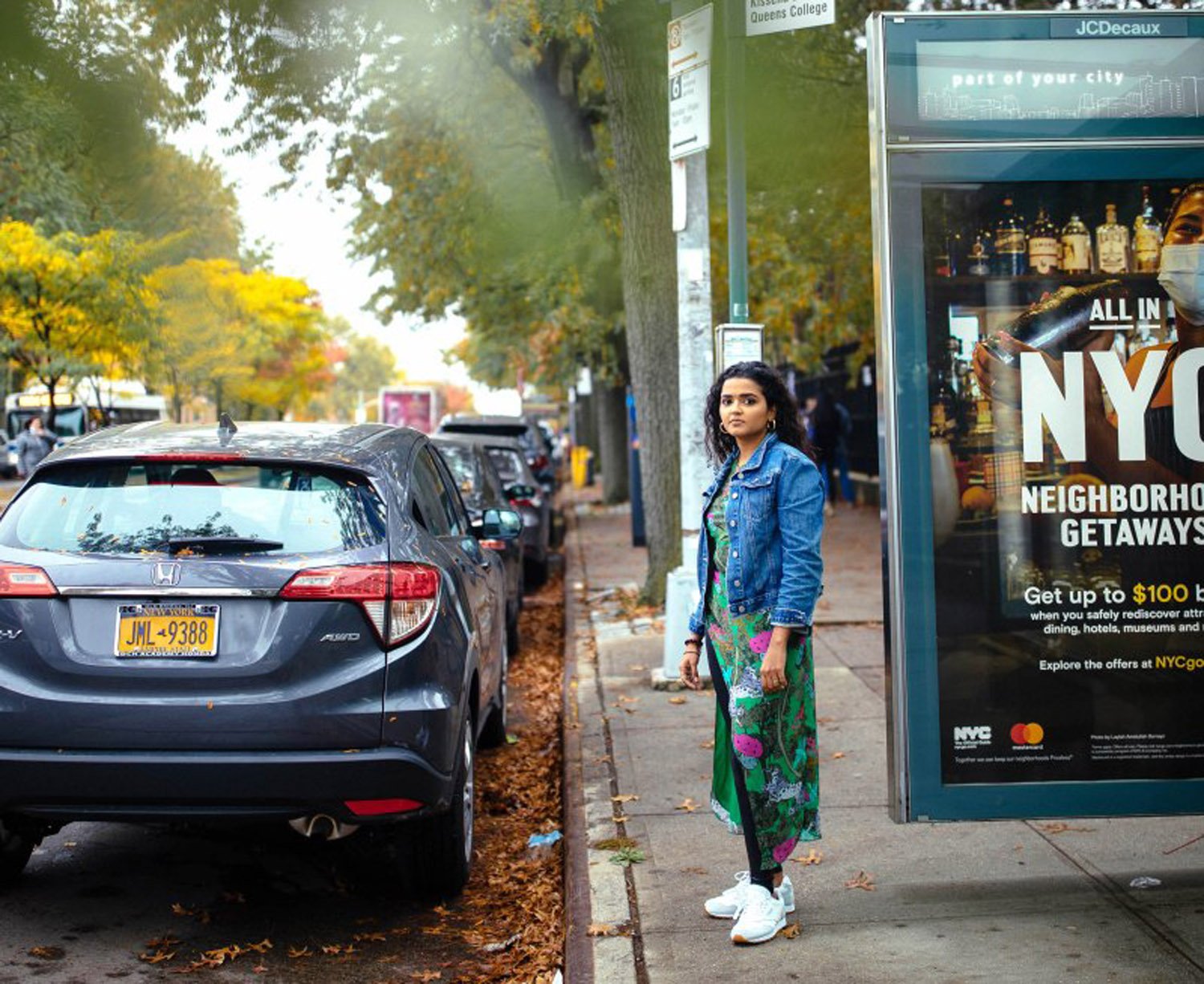Opinion: Envisioning a Carless Future for Eastern Queens
Streets Blog: NYC
Weaning residents off automobiles requires giving them accessible mobility options, a Council hopeful argues.
The city’s COVID lockdown last spring gave my Eastern Queens neighborhood a glimpse into a future that many claim is impossible — one in which we are much less dependent on cars, use more bikes, and have more electric bus routes.
Suddenly, the usual cacophony of cars honking, buses rumbling, and people yelling in the streets of my district quieted. We heard the murmurs of masked neighbors strolling the sidewalks, kids playing hopscotch, the dings of bicycles, and the occasional bus rolling to a stop.
To me, this future is not just a dream, but one that can be achieved in the next six years through a comprehensive expansion of safer, greener mobility options that get city residents out of their cars. If I am elected to represent District 24 in the City Council, promoting such transportation accessibility will be one of my top priorities.
As a lifelong Queens resident and a mom of two, stroller-reliant kids, I understand the dependency on cars: It comes from having no other accessible option. I can’t strap my kids to a Citi Bike (and even if I could, there is no Citi Bike in this part of Queens). The closest subway stop to my home is three miles away, and bus routes are few and far between. In order to be able to get anywhere in a timely manner, I have to drive. That’s why, in my neighborhood, policies geared toward removing cars inspire fear. To some residents, such policies signal longer commutes and fewer road options, complicating their already limited mobility. It’s hard to blame them for their opposition, when transportation alternatives such as buses aren’t reliable and the district lacks many protected bike lanes.
Lessening residents’ dependence on cars will require that we establish alternatives and incentives. My approach as a Council member would be two-pronged: I’d seek to ensure safety for cyclists and expand bus options to reach subway lines. That would mean fighting for the budget allocations necessary for life-saving barriers for bike lanes, advocating for infrastructure funding, and working with the MTA in order to designate more routes. Such a methodical approach will lead us to a car-less future.
Concurrently, I would work for the expansion of the Citi Bike program, which is essential for converting residents from motorists to cyclists. My district is one of many often overlooked by such bike-sharing programs because we don’t meet some arbitrary standard of gentrification and trendy, it seems.
A 2015 Vision Zero Queens report noted that “70 percent of pedestrian fatalities in Queens involved a passenger vehicle.” Bike lanes are worthless without the life-protecting barriers required to keep them safe. The much-touted benefits of bikes, from reducing the frequency of crashes, calming chaotic streets, and, of course, helping reduce air pollution, cannot be enjoyed if people do not feel safe enough to use them. In order to get more residents cycling, the city must ensure that the bike lanes are safe — and that motorists do not invade them. That’s why I recently exhorted motorists in my district to stop endangering bicyclists by parking in bike lanes. We all have to respect the rules of the road.
In my district, there are only two subway lines, concentrated in the Southern portion, and a handful of bus routes. The MTA’s newly unveiled Queens Bus Network redesign doesn’t offer the route expansions residents need in order to decrease their reliance on cars. Also disappointing was the removal of Sunday Express service, which is critical for the essential and frontline workers in my district, who must work on weekends.
Finally, I would seek to establish an advisory council so residents are empowered to join in this goal. In this way, we could arrive at a holistic, community-led plan to achieve the car-less future that my constituents deserve and need.
Deepti Sharma (@deeptinyc) is running for the Council seat in Queens District 24, which encompasses Kew Gardens Hills, Pomonok, Electchester, Fresh Meadows, Hillcrest, Jamaica Estates, Briarwood, Parkway Village, Jamaica Hills and Jamaica. She is the CEO and founder of FoodtoEat, a community-minded catering concierge service that connects immigrant, women and minority-owned food vendors to growth opportunities.




